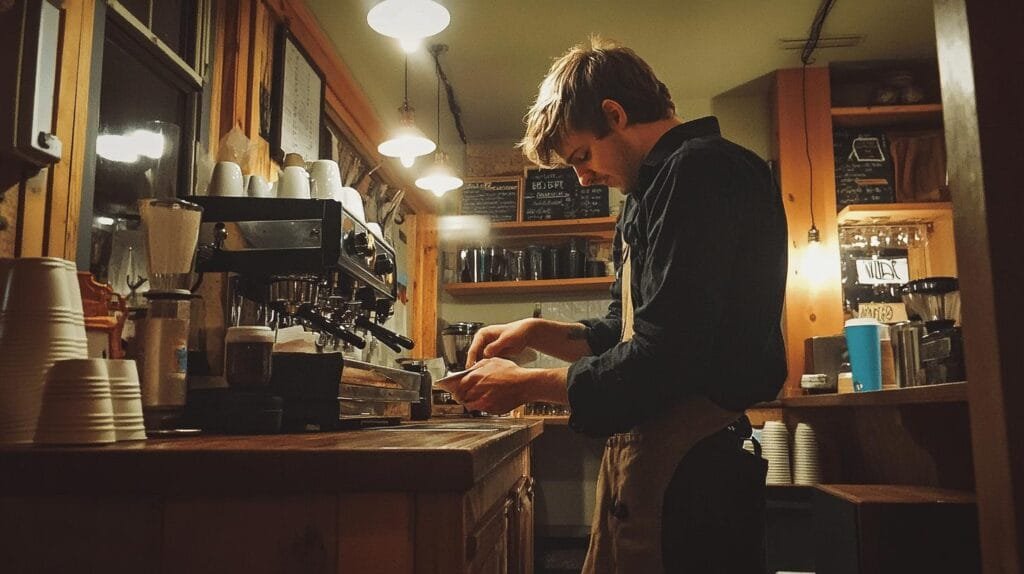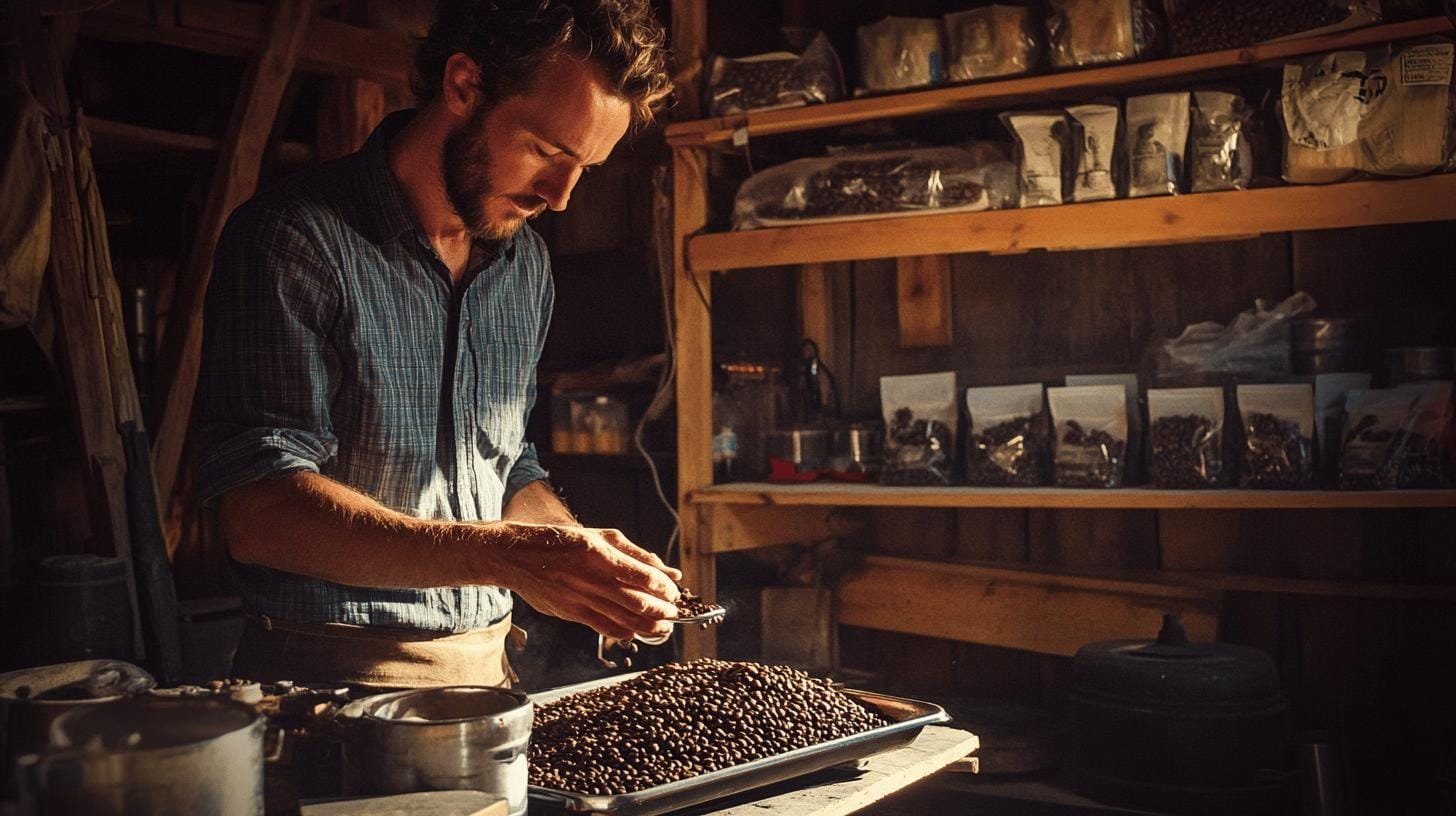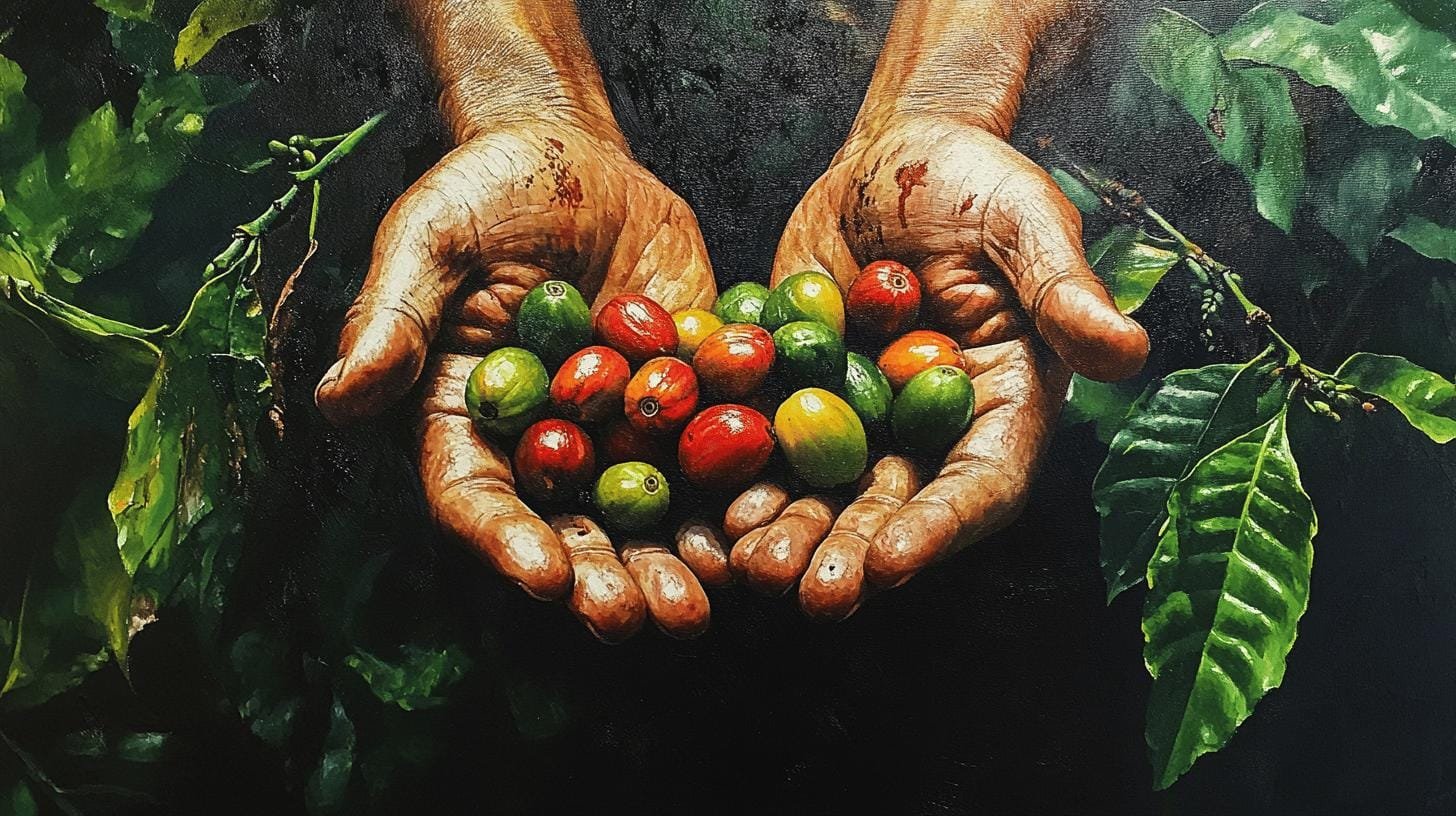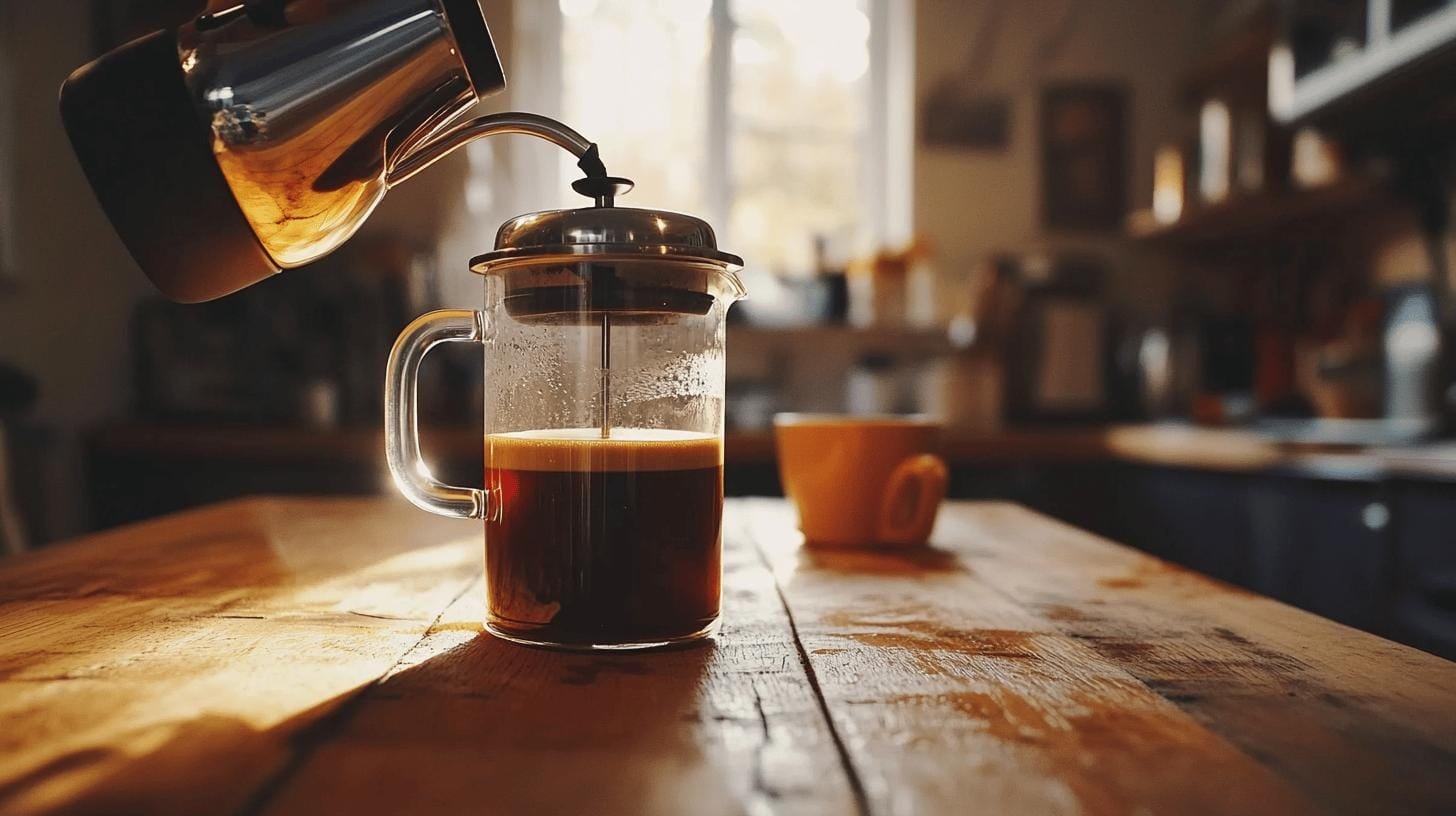
Artisanal Rituals for a Memorable Customer Experience
How can brands create a more balanced and memorable customer experience by blending artisanal product quality with thoughtful everyday rituals that keep people coming back?

Is artisan blend coffee just another coffee trend, or does it offer something truly unique for the discerning palate? With a focus on quality and distinctive flavors, artisan blend coffee stands apart by merging carefully selected beans to create a symphony of tastes and aromas. Unlike standard coffee blends, artisan varieties prioritize craftsmanship, using high-quality, single-origin beans and innovative roasting techniques to achieve complex flavor profiles. This article explores the alluring world of artisan blend coffee, defining its exceptional characteristics and uncovering the artistry that makes each cup an experience to savor.
What is artisan blend coffee? At its core, it’s a carefully crafted blend from various coffee beans, creating unique flavors and aromas. This process highlights quality and skill, using mainly top-notch, single-origin beans. Expert roasters experiment with combinations and roasting techniques to reveal complex flavors. Unlike mass-produced coffee, artisan blends focus on special taste nuances, offering a refined, unique experience.
The “artisan” label shows a commitment to quality and the art of coffee-making, setting these blends apart from commercial options. It represents a love for traditional methods and hands-on involvement in coffee production. This dedication guarantees that each cup delivers a rich, flavorful, aromatic experience, ideal for those who value high-quality coffee intricacies. By focusing on details, artisan blends let enthusiasts explore a broad range of flavors that standard blends can’t match.

Artisan roasting is a careful, skilled method to bring out the best in coffee beans. It involves small-batch production, giving roasters precise control over roasting profiles to highlight each bean’s best traits. This process is labor-intensive, needing keen insight into how beans react to heat. By carefully managing it, roasters develop complex flavors without burning, ensuring each cup is rich in taste and aroma.
| Roasting Technique | Flavor Impact |
| Light Roasting | Preserves acidity and fruity notes |
| Medium Roasting | Balances acidity with sweetness and body |
| Dark Roasting | Enhances bold, rich flavors with lower acidity |
| Slow Roasting | Increases depth and complexity in flavor |
Small-batch roasting is key to achieving flavor complexity in artisan coffee. It means roasting limited beans at a time, allowing adjustments for uniformity. This attention ensures every batch maintains quality and flavor. By focusing on small amounts, roasters experiment with profiles, creating more nuanced and intricate flavors.
Slow roasting boosts flavor complexity. Extending roasting time allows gradual flavor development, preventing scorching and ensuring a uniform roast. It highlights each bean’s unique traits, like inherent sweetness, acidity, and aroma. This method enhances the coffee experience, showcasing the depth high-quality beans offer.
Artisan blend coffee is prized for complex, distinctive flavors. It’s a process that highlights flavor molecules, oils, and aromas meticulously, leading to smooth, rich coffee. Each sip offers a tapestry of flavors, often featuring fruity, nutty, or chocolatey notes. Emphasizing quality makes these flavors clear and balanced, offering a superior experience compared to standard blends.
Aroma enhances the tasting experience, as the first encounter with artisan coffee is its aroma, setting the flavor stage. Aromatic compounds are released during brewing, enveloping the senses and prepping the palate for the taste profile. It can hint at the coffee’s origin and roasting care, adding another enjoyment layer.
Artisan blends achieve taste complexity and balance by selecting high-quality artisan coffee beans, scientifically blending, and precise roasting. Complexity arises from combining beans with unique characteristics. Roasters ensure no single flavor dominates, creating an intricate, cohesive cup. This balance distinguishes artisan blends, letting enthusiasts savor a full flavor spectrum with each sip.

Picking the right artisan coffee involves a careful approach, considering personal taste and bean quality. Factors to consider include bean origin, affecting flavor profiles, and roast level, impacting taste and aroma. Opting for sustainably sourced beans ensures environmental responsibility often links to quality. Artisan blends are pricier due to meticulous production and superior bean quality reflecting craftsmanship.
Artisan coffee emphasizes quality and craftsmanship, often with hand-roasted beans. Commercial coffee is mass-produced, focusing on efficiency and volume over flavor nuances. The artisan approach allows detailed attention during roasting, preserving and enhancing each bean’s traits for authentic, refined taste.
Rich, complex flavors come from skillful blending and roasting. High-quality bean selection and roasting precision create flavor balance, featuring fruity, nutty, or chocolatey notes. Commercial coffee lacks this complexity, offering a more predictable flavor.
Artistry ensures each batch meets high standards. Roasters monitor production stages to maintain consistency and excellence. This contrasts with automated commercial processes where nuances may be overlooked. Artisan coffee focuses on craft and control for a superior product, celebrating diverse and exquisite flavors.

What’s essential for brewing artisan coffee at home? Precision in brewing is key to preserving unique flavors. Proper grind size, brewing method, and water quality impact the final taste. Techniques like pour-over, espresso, and French press highlight complex flavors. These methods control brewing variables, enhancing coffee characteristics.
A quality grinder and precise tools are crucial. A burr grinder ensures a consistent grind size for even extraction. Brewing tool choice affects process and flavor outcome. Accurate scales and thermometers refine brewing. Investing in equipment enhances the experience and ensures each cup captures high-quality coffee nuances.
Exploring what is artisan blend coffee unveils the intricate artistry involved in crafting these unique coffees. From expertly roasting small batches to selecting the finest beans, each step meticulously enhances the coffee experience. Artisan blends focus on flavor complexity through careful craftsmanship.
Understanding the distinction between artisan and commercial coffee highlights the depth and care in production. Embracing artisan coffee means savoring quality at home, with brewing methods that preserve distinct flavors. Delve into the world of artisan blend coffee to truly appreciate its craftsmanship and enjoy a superior coffee experience.
Artisan blend coffee is crafted from a combination of different coffee beans, chosen for their unique characteristics. These blends focus on quality, often featuring high-quality, single-origin beans to develop complex flavors.
“Artisan blend” indicates coffee crafted with attention to detail, blending diverse beans to produce unique flavors and aromas, emphasizing quality and craftsmanship in the roasting process.
Chain stores often serve pre-packaged, mass-produced coffee, while artisan coffee shops focus on craftsmanship, quality, and direct trade practices, providing freshly roasted, unique blends with distinct flavors.
Artisan coffee brands are companies committed to producing high-quality, meticulously roasted coffee. They focus on unique blends, sustainable sourcing, and craftsmanship to provide exceptional coffee experiences.
Artisan coffee often includes specialty coffee but emphasizes the artistry of the roasting process and blending, while specialty coffee highlights the quality and grading of beans based on specific criteria.

How can brands create a more balanced and memorable customer experience by blending artisanal product quality with thoughtful everyday rituals that keep people coming back?

Independent coffee shops have always been about more than caffeine—they’re hubs of creativity, connection, and care. As café culture continues to evolve, new trends are

Introduction Independent cafes win when they feel like the neighborhood’s living room and operate with the discipline of a great kitchen. Below is a quick

Discover how top specialty coffee brands create lasting loyalty through storytelling, sourcing, and community connection. Real tips from 6 industry experts.

Discover the ultimate showdown between two beloved coffee brewing methods: the French press and Chemex. Explore how each technique caters to distinct palates, with the French press delivering bold flavors and the Chemex presenting a bright, clean taste.

Unlock the secrets to brewing the perfect cup of coffee with our comprehensive guide on using a coffee scale. Discover how precise measurements enhance flavor and consistency while eliminating bitterness.

Discover how water temperature plays a vital role in brewing the perfect cup of coffee. This article delves into the ideal temperature range of 195°F to 205°F for optimal flavor extraction, enhancing the enjoyment of high-quality beans.

Discover the world of curated specialty coffee bundles, perfect for enthusiasts seeking quality and craftsmanship. This article explores the benefits of ethically sourced, small-batch beans from brands like Equipoise Coffee, offering diverse flavor profiles that elevate your brewing experience.

Discover the art of manual brewing to elevate your coffee experience! This article explores various techniques like pour-over, French press, and AeroPress, revealing how they enhance flavor and your connection to every cup.